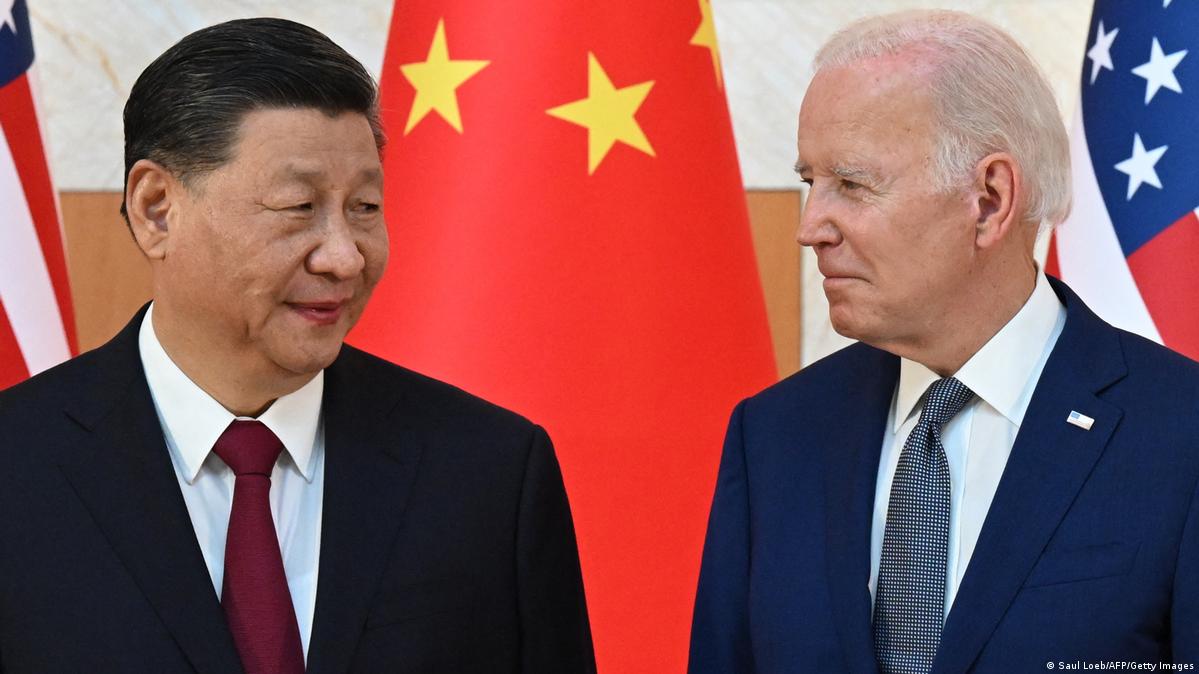
Chinese President Xi Jinping on Tuesday criticized Western “repression” against China, encouraged, he said, by the United States. The leader asked China’s private sector for more innovations so that the country is less dependent on the outside world.
Beijing’s ambitions to develop cutting-edge technology are bumping into ever-increasing restrictions from Washington and its allies, prompting Chinese companies to redouble efforts to overcome the need for crucial imports.
China and the United States have been locked in a fierce battle for months to manufacture semiconductors – electronic components that are indispensable for the operation of smartphones, connected vehicles or military equipment.
In the name of national security, Washington has in recent months multiplied sanctions against Chinese chipmakers, who are now unable to obtain American technology.
“Uncertain and unpredictable factors have increased considerably for China,” Xi Jinping declared at the annual legislative session in Beijing, according to a publication by state news agency Xinhua.
“Western countries led by the United States have embarked on a policy of containment, encirclement and repression against China, which has provoked unprecedented, severe challenges for the development of our country,” added the 69-year-old president, who is expected to win a third term in brief.
“In the face of profound and complex changes both at the international level and in China, we must remain calm, focused, act proactively, demonstrate unity and dare to strive for success,” Xi said. Private companies “must take the initiative and follow the path of quality development,” she said.
Xi also called for strengthening China’s independence “by building a strong industrial sector”. “A large country of 1.4 billion people must only rely on itself in this matter because international markets cannot protect us,” he insisted.
suspicion of espionage
Disputes between Beijing and Washington have increased in recent years over issues such as Taiwan, sovereignty in the South China Sea, the imbalance of the trade balance or the treatment of the Uighur Muslim minority. Relations were further strained in February when the US government shot down a Chinese balloon it claimed was used for espionage, which China denies.
The incident prompted US Secretary of State Antony Blinken to postpone a diplomatic visit to Beijing, where he intended to address a number of important issues.
Asked this Tuesday during a press conference, Chinese Foreign Minister Qin Gang lamented the current state of China-US relations. The chancellor argued that relations between the two powers should be based on “common interest and friendship, and not on domestic American politics and this kind of hysterical neo-McCartism”, in reference to the witch hunt against communism in the 1950s in the United States. .
Qin, who was ambassador to Washington, also regretted the recent accusations by some western countries – without evidence, according to him – that China intends to supply Russia with weapons for the war in Ukraine. The minister also said that China is not “at the origin or part of the crisis and has not supplied arms to any of the parties”, while calling for peace talks “as soon as possible”.
In February, Beijing presented a 12-point document that it called a political solution to the conflict. The text calls for respect for the territorial integrity of all countries and makes an appeal for dialogue. However, the initiative was seen with skepticism by Western countries, since China, an important ally of Moscow, never condemned the Russian invasion.
In the interview, Qin Gang stressed that China is not at the origin of the crisis and “has not supplied arms to any of the parties”. The diplomat also appealed for peace negotiations between the two countries “as soon as possible”. According to him, the relationship between Beijing and Moscow does not constitute “any threat to any country in the world”.
(With information from AFP)
Source: https://www.diariodocentrodomundo.com.br/xi-jinping-afirma-que-ha-uma-repressao-ocidental-contra-a-china-liderada-pelos-eua/

